
HOT TOPICS

Jan 16, 2026

Dec 26, 2025

Nov 7, 2025

Sep 26, 2025

LATEST
Feb 13, 2026

Jan 16, 2026

Jan 2, 2026

Dec 26, 2025

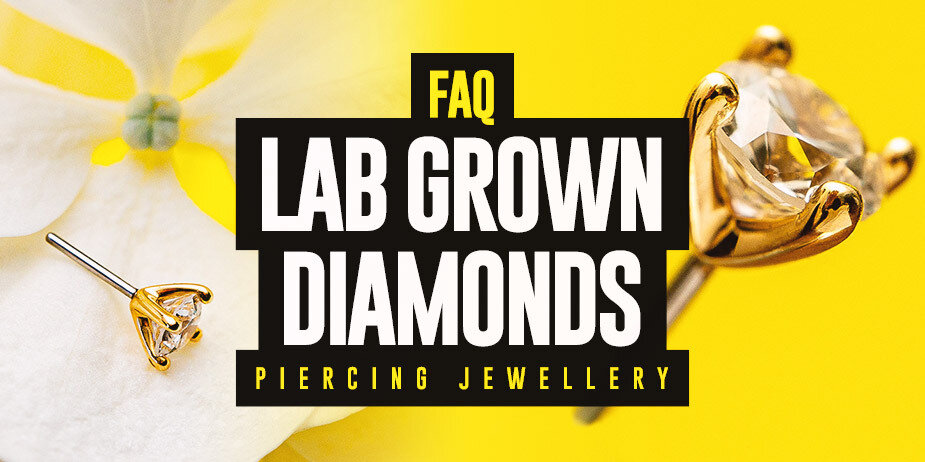
Everything You Need To Know About Lab Grown Diamonds
Featured Products
Are lab diamonds as good as real diamonds?
The chemical properties of lab diamonds are the same as real diamonds so you can expect the same clear, sparkly aesthetic for a fraction of the cost.
While cost is a key factor in choosing a lab-grown diamond, many people opt for lab-grown over natural due to other environmental and ethical implications. There is no risk of miners being harmed in the process of creating a lab-diamond. Ethically, you will not need to worry about your lab grown diamond being a ‘blood diamond’ because they are manufactured in a laboratory. This also means the supply chain is shorter, keeping down the cost of the diamond.
It is also said that the supplier chain is easier to track. In natural diamond mining not only is the treatment of the miners a major concern but stolen goods are also a potential problem. In the lab diamond industry, the chain is much more simple and you will also find you are less likely to unknowingly purchase a fake product because there is little financial gain.
Structurally your lab-grown diamond has the exact same chemical elements as a natural diamond and while the long-term ethical effects and cost of lab created diamond earrings are still unknown, they certainly appear to be more sustainable. There is less risk of workers being harmed and there is less damage to the environment as no mining is taking place.
Are laboratory diamonds worth anything?
One of the main selling points of a laboratory diamond is that it is much cheaper than buying a natural diamond - sometimes up to 20% or more. However, this is not to say laboratory diamonds are not worth anything. They are still an investment piece for your collection beyond a pair of cubic zirconia earrings.
What are the downsides of lab-grown diamonds?
Due to laboratory diamonds being relatively new to the market, the downside of lab grown diamonds is that we do not know the future value. With an almost unlimited amount of lab-grown diamonds able to be made compared to the finite resources of natural diamonds, the value may decrease over time. However, we can be sure that the quality will not decrease over time.
Do lab-grown diamonds get cloudy?
Lab-grown diamonds are made of the same compounds as natural diamonds meaning they are just as durable and won’t chip. They also have the same brilliant sparkle that won’t dull over time. If properly cared for, just like a natural diamond, your lab-grown diamond jewelry can be passed on for generations. Synthetic diamonds do not look fake in the way that Cubic Zirconia may because they are not fake diamonds. They are real diamonds, they are just not naturally formed. Lab-grown diamonds can have better clarity than natural diamonds because they are grown in a controlled environment. This means that the angles of the stone can be very precise, creating the perfect sparkle.
How do you take care of a lab-grown diamond?
Make sure to keep your lab-grown diamond clean by gently rinsing it with mild soap and water or using a jewelers cleaning solution. Be mindful of the solution you choose to clean your jewelry with, particularly if it is piercing jewelry as you do not want to use anything too harsh. Dry it with a lint-free cloth. Like all jewelry, it will tarnish over time if exposed to harsh chemicals, although it is more likely to be the metal surround that discolors. To help your jewelry stay fresh, we always recommend removing it when in chlorinated water.
Can a jeweler detect a lab diamond?
A jeweler cannot detect a lab diamond just by looking at it. Using specialist equipment, the jeweler can check for a microscopic inscription to denote it is a lab-grown diamond. The difference between lab created diamonds and other ‘fake diamonds’ is the chemical and physical makeup of a lab created diamond is the same as a natural diamond. To the naked eye, the lab grown diamond looks exactly the same as a natural diamond and will pass all the usual tests for checking for a fake diamond. Fake diamonds are usually not made of carbon whereas a lab-grown diamond is.
At Blue Banana, we love to find the best piercing jewelry for you to make sure your piercings heal easily and look amazing. Our classic titanium piercing jewelry is where it all started but we’ve also introduced real gold jewelry and threadless jewelry to our collection and will keep working to find the best pieces for your piercings. The benefit of high quality jewelry is that it helps to care for your piercings long-term. For example, threadless jewelry slides easily into your piercing hole without collecting debris or catching the skin. Check out our range of lab-grown diamond piercings to start your collection. Including threadless jewelry, we’ve made sure our lab-grown piercing bars are suited to daily wear. This durable piercing jewelry looks timeless and fits in whether you wear it every day or for special occasions.





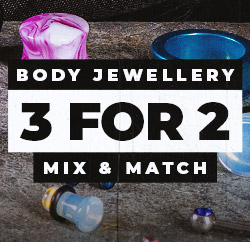



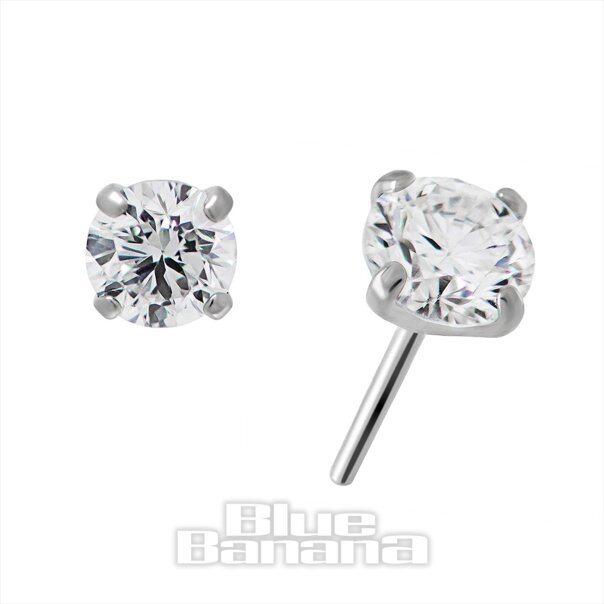
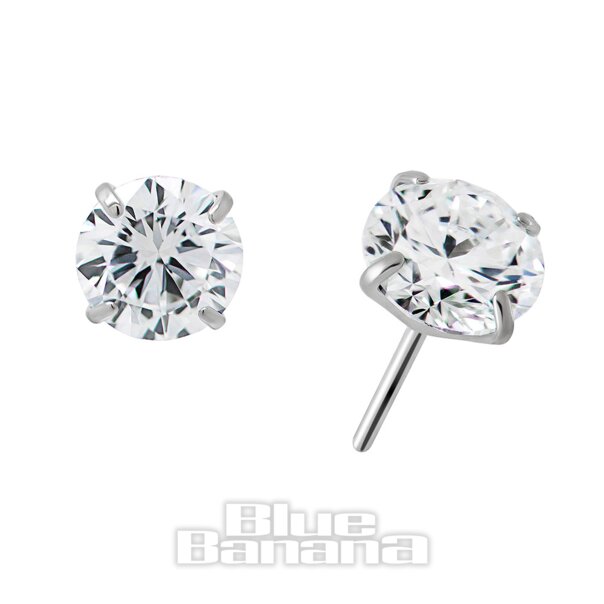

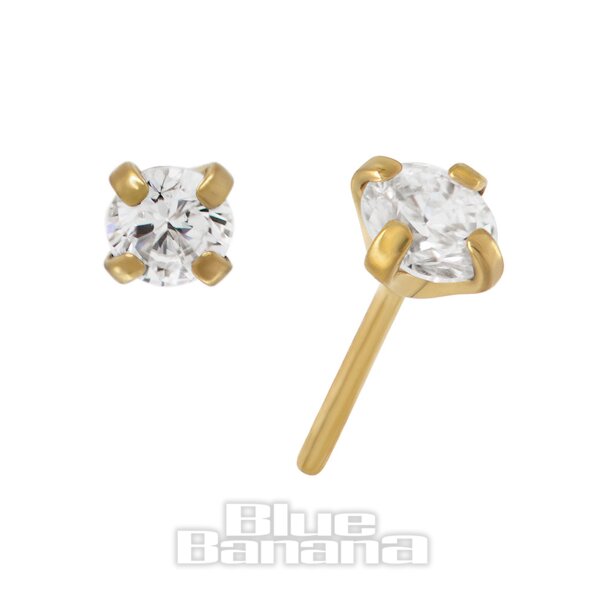
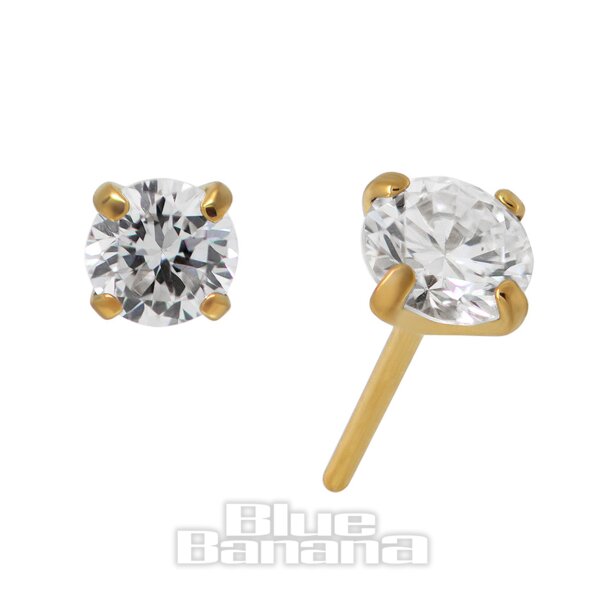
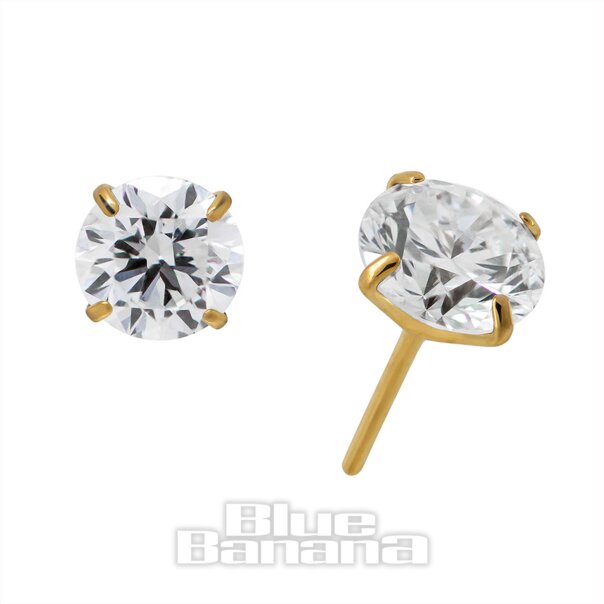
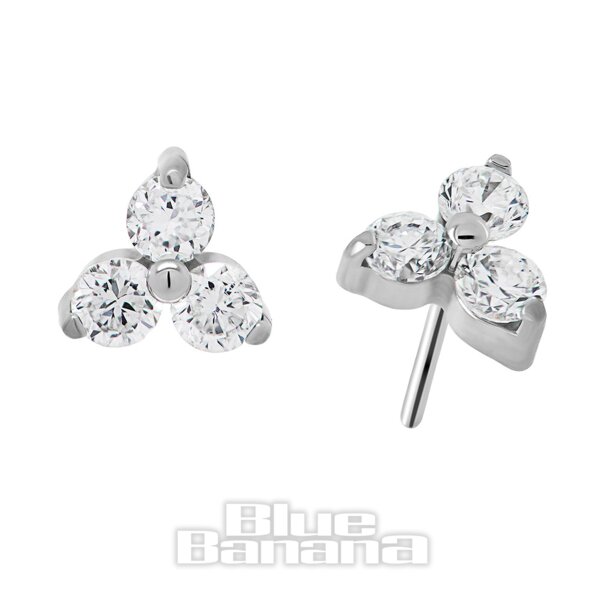
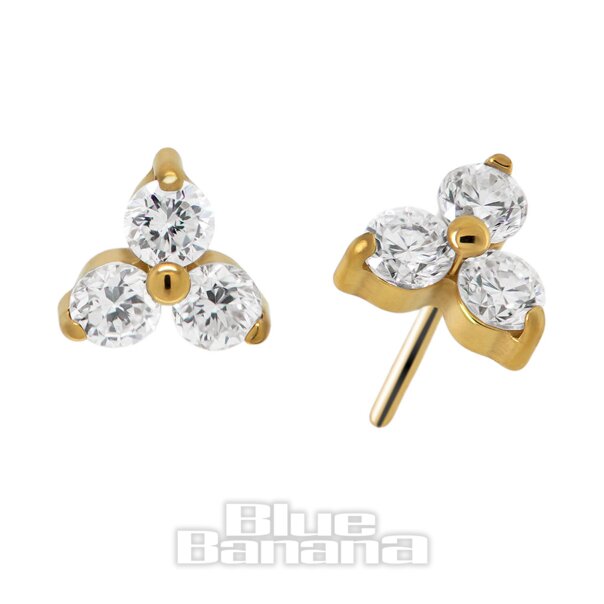
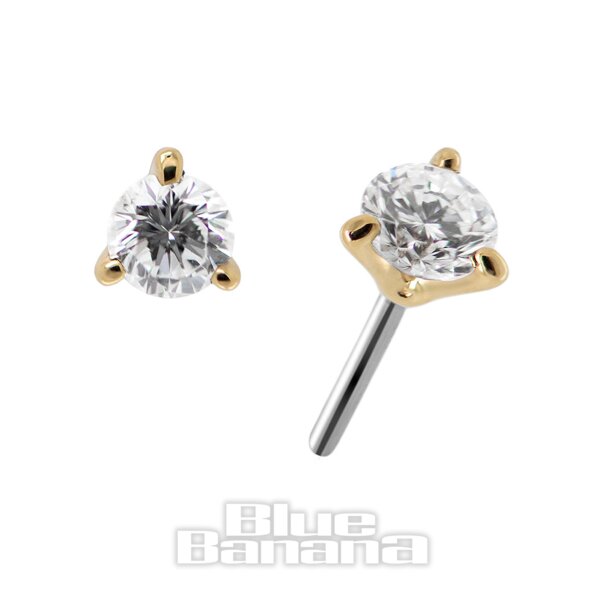

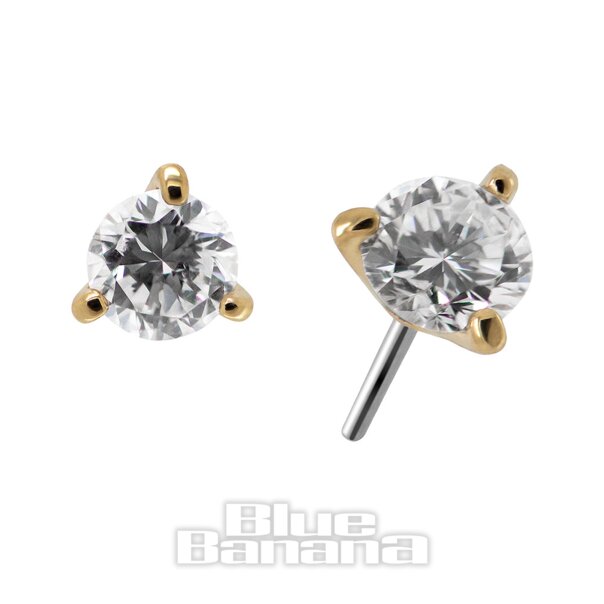
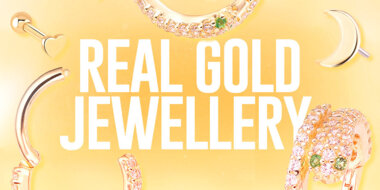


.jpg)


